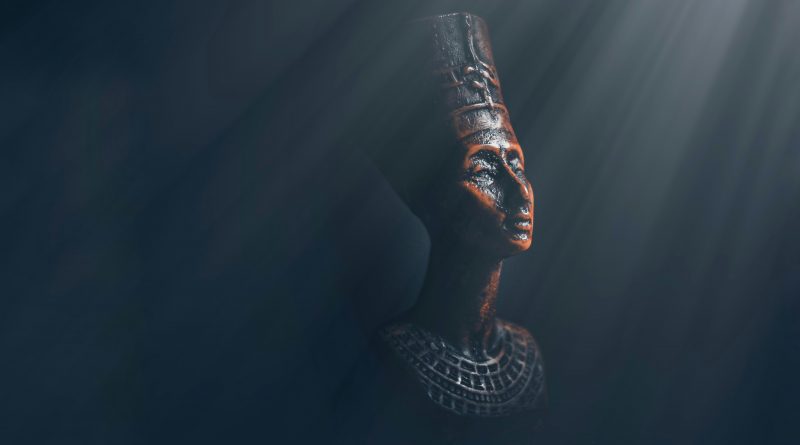Unpacking the Afrocentric Debate in Egypt
By: Nadine Samy
Picture by: Omar Abozeid
A great pride for Egyptians lies in their ancient past, where they find much inspiration for their architecture, culture, music, and daily customs. Tourists from around the world come to Egypt to see for themselves what they learned in textbooks as children. Egypt, land of the Nile, the Pyramids and Queen Cleopatra, has continued to hold the intrigue of millions.
But Egypt is also a nation at the crossroads of not only its own rich civilization and history but also those in Africa, Asia and Southern Europe. In recent years, some Egyptians say they are taken aback by efforts to rewrite their ancient history and have voiced their resentment that social media is awash with conspiracy theories such as aliens building the Pyramids or that Ancient Egyptians are black Africans.
Simultaneously, a great trouble for African Americans lies in their desire to reclaim their past. At this crossroad, there is a conflict over ancient Egypt’s rightful descendants.
This debate saw a resurgence after the cancellation of the African American actor Kevin Hart’s show in Egypt last February. Though the cancellation was due to logistical issues with the production company in charge of his show, many Egyptians took to social media to express their anger with Hart’s alleged comments in the past, claiming that ancient Egyptians were black.
“Egyptians have now developed a national identity that sees its genesis in ancient Egypt,” explained Associate Professor Amina Elbendary at the Department of Arab and Islamic Civilizations, referencing the sensitivity present in contemporary Egypt around “national identity and a desire to stress a unified, almost homogenous, identity.”
Earlier this month, Netflix came out with a documentary film on Queen Cleopatra of the Ptolemaic Kingdom of Egypt, portrayed by a Black British actress. Angry reactions from Egyptians poured in over this seeming rewriting of history depicting the last Egyptian ruler as an African Queen. Egyptians and others also mentioned the historical fallacy behind this casting choice, being that Cleopatra is not originally from Egypt but is of Macedonian descent, her father being Ptolemy XII.
Many also rejected earlier controversial claims by African American comedian Kevin Hart that Egyptians were black; similar claims have been circling among the African-American community for a while now, but appear to be gaining traction.
Elbendary believes Egyptians may not be aware of this aspect of modern African American culture and the context in which it developed.
“There is usually a lot of fear and insecurity that comes from a lack of knowledge and what some Egyptians assume is cultural appropriation; it’s seen as threatening for some people,” she added.
Although Egypt has a Nubian population that is conscious and proud of its unique identity as a subculture in Egypt, Elbendary states, the way they identify themselves is different from how African Americans identify themselves as Black. The tension lies in these racial categories that have different implications for different groups.
Elbendary clarified, however, that these are just presumptions due to the lack of research and media analysis done in accurately assessing what Egyptians think of the Afrocentrism movement.
Afrocentrism is a movement that was created to counter Eurocentric (focus on European culture or history) outlooks on history, which were also rooted in manifest destiny and the colonialist imperative to bring civilization to backward societies outside of Europe. Afrocentrism originally started out as an academic methodology to center the voices of people from Africa and the African diaspora at large.
“Afrocentrism is a reaction to Eurocentric history which even when it does talk about other places in the world like China or Africa, it’s based on when the Europeans had contact with them,” said former Reference and Instruction Librarian Maurice Hines.
Originating in the 50s and 60s, the movement came alongside the Black Studies movement in the United States when there was a growing interest among African Americans to learn about their history and reconnect with their roots, explained Hines.
Hines expanded that it wasn’t until Molefi Asanti, an American professor at Temple University in Philadelphia and a leading figure in African American studies in the 1980s, did the term Afrocentrism or Afrocentricity come into realization.
“Egypt shows up in all of our various movements,” said Hines.
Hines mentioned that the relationship between African Americans and ancient Egypt runs deep considering that Egypt is a country located on the African continent and has a rich heritage.
“One thing about African American communities is that we feel like we lost our history with the slave trade. Particularly in the U.S, we were deliberately cut off from Africa, we weren’t allowed to speak any African languages or practice any African religions. It’s a reclaiming of our identity and reconnecting with our roots and origins,” said Hines.
Hines believes that Egyptians do not properly understand the history and that these debates are due to miscommunication and an inability to distinguish the terms African, African American, and Black.
Hines explains that these terms are used interchangeably. He makes it clear that differentiation exists between North Africans and sub-Saharan Africans and that anyone born on the African continent can be African in one sense.
“The categories of Black and other racial categories are modern identities and constructs that developed in the modern period and it’s difficult, even anachronistic (out of date), to apply them to other earlier historical contexts like ancient Egypt,” says Elbendary.
Meanwhile, Assistant Professor at the History Department Mark Deets faults the Atlantic slave trade for destroying the social links back to Africa. Most African Americans didn’t know where they came from. Their ancestors came to America in chains and they were treated like chattel slaves, he said.
“Eventually when we say the word, “Africa”, people don’t think of North Africa or South Africa with sizeable white populations, they think of sub-Saharan Africa in the middle,” explained Deets.
Elbendary, Hines, and Deets agree that Egypt has always been at a crossroads for Africa, Asia, and Europe and a region of ethnic and cultural mixing, considering the Arab slave trade and the multiple occupations it has witnessed. This consensus could be used as an argument against Afrocentric claims in relation to ancient Egypt.
Deets added that it’s problematic to say the ancient Egyptians were not Arabs, explaining how it’s challenging to give a definite date to when the pharaohs became white and then black and then Arab. However, he said, “It’s useful for certain people who have certain political agendas”.
When Afrocentrism was introduced to Egyptians, it carried a lot of anti-Muslim and anti-Arab sentiments with African Americans blaming the Arabs and the Muslim Conquest for “white-washing” Egypt, according to the article “Africa is a Country” by Hisham Aidi.
But pioneer scholar in studies of Afrocentricity Cheikh Anta Diop who called this supposed African wipe out by the Arab invasion in Egypt “a figment of the imagination”.
Hines refers to the globally recognized genre of hip hop and states that “many of the pioneers of hip hop were affiliated with some sort of Islamic or Afrocentric movement, so this is where the culture is coming from, from these intellectual undercurrents. To really understand the culture and the music you have to understand Afrocentrism.”
With this debate being carried into modern times, Hines contends that now it has shifted to become “apolitical” and has “deteriorated into a cult mindset” for some.




